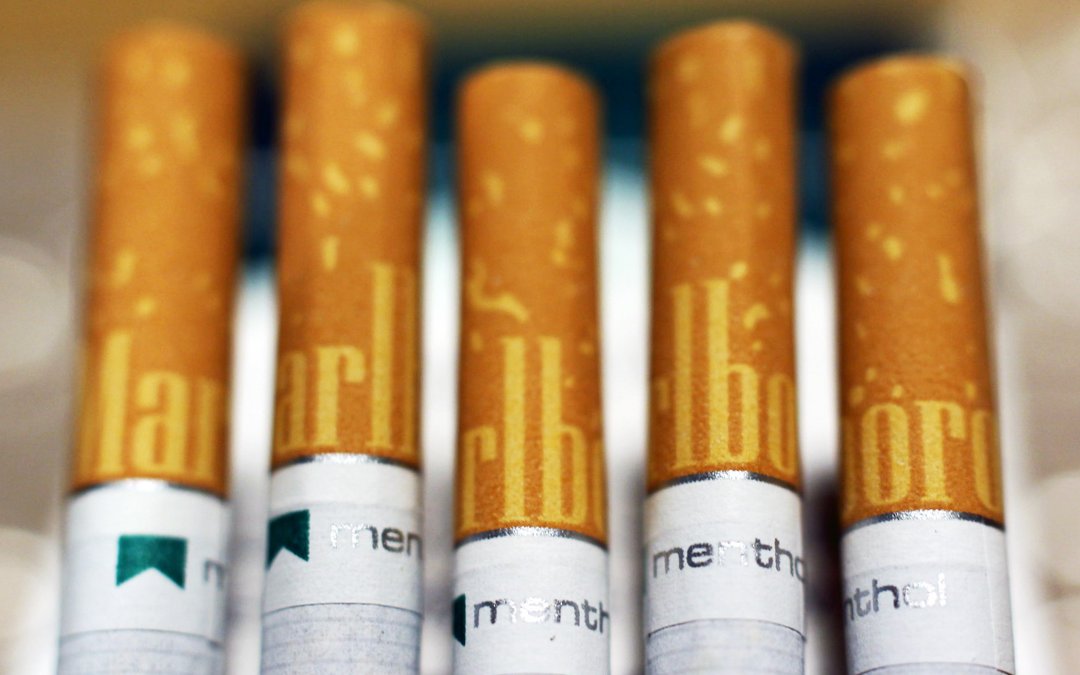WASHINGTON — About one in five lesbian-, gay- and bisexual-identifying adults smoke cigarettes, compared to about one in seven adults who identify as straight — placing LGB Americans among the top 10 populations disproportionately affected by tobacco use, according to a new report by the American Lung Association.
Along with Black American smokers — about 81% of whom use menthol cigarettes — women and youth, LGBTQ+ people also disproportionately consume menthol. Menthol smoking rates are particularly high among lesbian and female LGBTQ+ smokers, according to Ollie Ganz, who researches public health at Rutgers University.
“Menthol cigarette smoking is associated with nicotine dependence and poor cessation outcomes,” Ganz told Medill News Service. “And so if there’s certain populations that are using mental cigarettes in disproportionately high rates, it could ultimately be exacerbating tobacco-related disparities.”
Overall cigarette use declined between 2009 and 2019, but non-menthol cigarettes account for 91% of that decline, according to the report.
The Food and Drug Administration last April announced it would propose rules for the removal of menthol cigarettes from the marketplace. However, the ALA report notes that it may take several years to enact these rules — a significant delay after the FDA first issued reports in 2013 finding that limiting menthol sales would benefit public health.
The tobacco industry’s targeted menthol marketing plays a significant role in driving these disparities, according to the report. Nearly 30 years ago, R.J. Reynolds Tobacco Company launched “Project SCUM” — or “Sub Culture Urban Marketing” — a marketing plan targeting LGBTQ+ populations in San Francisco, the report’s chief author Thomas Carr said.
More recently, tobacco ads have included phrases like “take pride in your flavor,” said Catherine Saucedo, deputy director of the Smoking Cessation Leadership Center at the University of California, San Francisco.
“They still sponsor pride events as well,” she said, “so they’re very insidious, and they are definitely keeping this rate high.”
These marketing campaigns compound the existing circumstances that place LGBTQ+ people at higher risk of addiction, Saucedo said.
“You have maybe violence and stress that’s impacted these communities because of how they’ve been targeted, you have a higher risk of mental health and depression and anxiety,” she said. “A lot of that can be due to coming out — there’s rejection, it can be traumatic, there’s discrimination even by healthcare systems.”
Next steps in state regulations & combating youth vaping
Along with banning menthol cigarettes and flavored cigars from the marketplace, the report said increasing tobacco taxes at a state level would be a key step in reducing tobacco use.
North Carolina, which ranks among the bottom four states for tobacco regulation in the report, also has one of the lowest cigarette taxes in the country, according to Morgan Wittman Gramann, executive director of the North Carolina Alliance for Health.
The NCAH has advocated for the FDA to use its authority to ban menthol products, Wittman Gramann said. On a state level, the organization has focused on reducing youth tobacco use by securing funding for e-cigarette cessation programs.
“This is especially important as use of e-cigarettes by high school students has increased 1129% in North Carolina between 2011 and 2019,” Wittman Gramann said.
Along with reducing smoking rates in Black and LGBTQ+ communities, ending the sale of flavored tobacco products, like menthol, will help curb the youth vaping epidemic, according to the report. Despite the overall decline in adult smoking rates, two million high school students reported using e-cigarettes in 2021.
Tobacco use was also significantly higher among youth who identify as LGBTQ+, Carr said.
While the FDA is due to propose rules for flavored tobacco regulation in April, Carr said local and state governments can still take action.
“We expect an instant tobacco industry lawsuit the moment final rules are proposed, which is going to drag it out even further,” Carr said. “States and local communities need to pass laws to prevent the sale of all flavored tobacco products, including menthol cigarettes, and that would also solve the problem, at least at the state and local level.”
Though enacting a nationwide ban on the sale of flavored tobacco could take several more years, Ganz said the FDA’s April deadline is still a significant step.
“It’s exciting from a tobacco control perspective,” Ganz said. “There’s a lot of evidence that a menthol ban has enormous potential to save lives.”


